Special Report
24 Members of Congress Who Didn't Last 100 Days
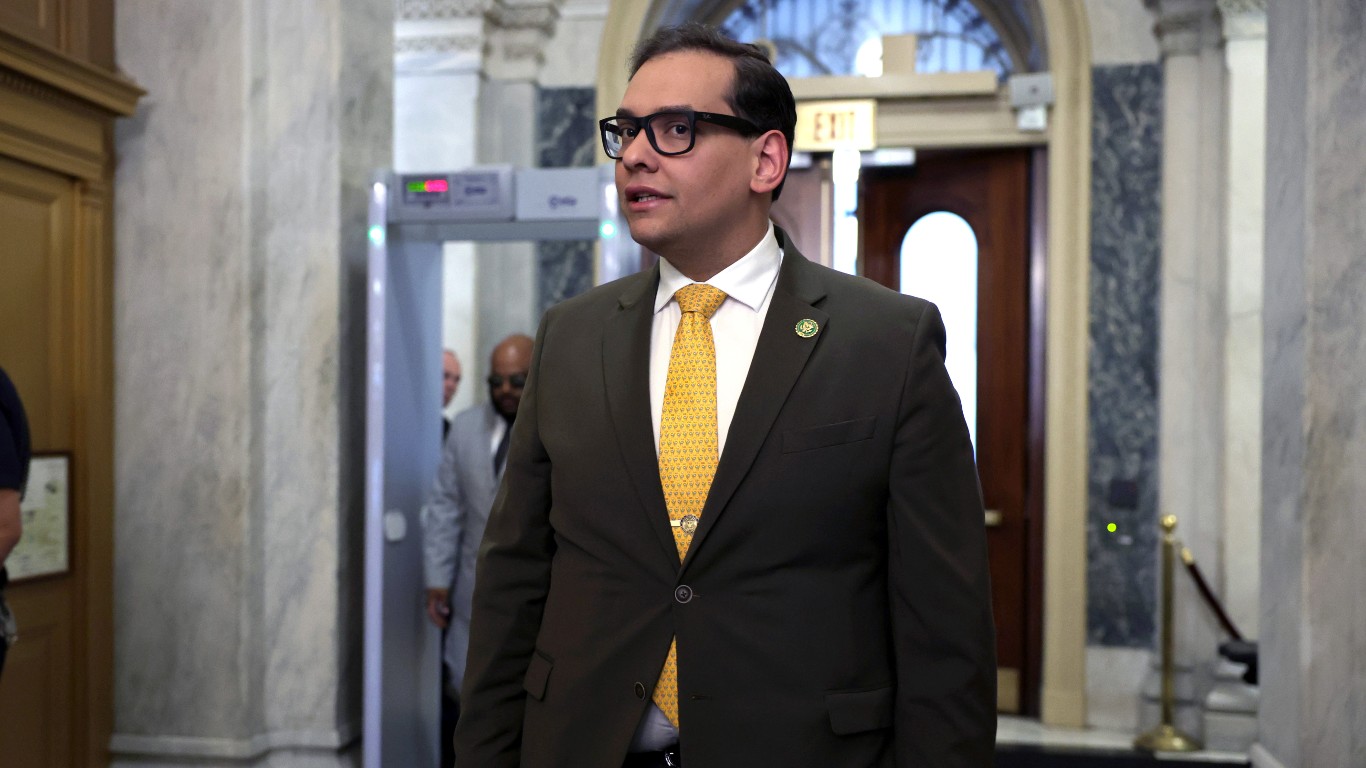
Published:
Last Updated:

Last week, recently-elected Long Island congressman George Santos was indicted on 13 felony charges, which including fraud, money laundering, and theft of public funds. Santos, if convicted of some of the most serious charges, faces up to 20 years in prison. These charges stem from revelations of alleged widespread fabrication the recently-elected congressman made leading up to his election as the representative for New York’s 3rd district. It remains to be seen how these charges will affect Santos’s term in office. Shockingly, even if he were to resign this week, he wouldn’t even be close to the fastest to be ousted from office.
Some Congress members serve a lifetime. The record for the longest consecutive service is Michigan Rep. John Dingell, Jr., who served for more than 59 years before announcing in 2014 he would not seek a 31st term. Some members of Congress, however, only served for a very brief period of time – some for as short as one day.
Every Congress member – whether elected to the Senate of the U.S. House of Representatives – dreams of having a long, illustrious term. And while many have served for decades, others, for a variety of reasons, have served for far briefer periods of time. These 12 U.S. presidents were also generals.
The vast majority of short-serving representatives succeeded others who had either resigned or died in office. After being appointed or winning a special election, they served out the remainder of their predecessor’s term, which in some instances were incredibly brief. Others died in office shortly after being sworn in, and others served (very) abbreviated terms after winning long-contested elections. Some of their stories are worthy of being one of the best political comedies in history.
To determine the shortest serving Congress members of all time 24/7 Wall st. reviewed the entire history of representation since the U.S. government began. As such, we ranked both members of the House and Senate according to their total time in the U.S. Congress. Each of these members served a total of less than 100 days, some even as little as a single day.
Even if they only served for a few days (or less), these representatives managed to find their way into the history books.
Click here to see members of congress who didn’t last 100 days on the job.
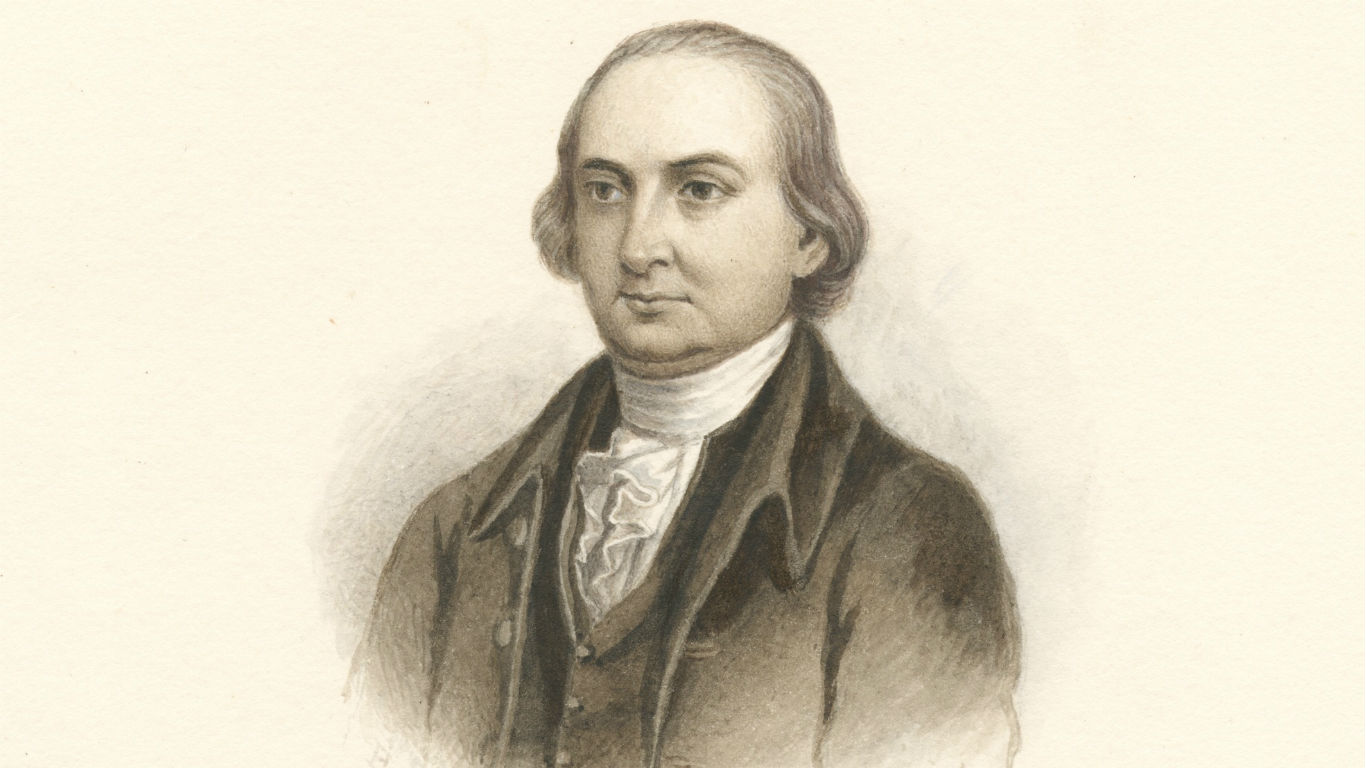
24. George Walton
> Time served in office: 97 days
> Dates of service: Nov. 16, 1795 – Feb. 20, 1796
> Legislative body: Senate
> Political party: Federalist
> State: Georgia
George Walton was a Founding Father and signer of the Declaration of Independence and had a long and illustrious career as governor of Georgia, House representative, and Chief Justice of Georgia. In 1795, he was appointed to the U.S. Senate to fill a vacancy caused by the resignation of the Georgia Sen. James Jackson, and left when a successor, Josiah Tattnall, was elected 97 days later.
[in-text-ad]
23. William Francis Strudwick
> Time served in office: 95 days
> Dates of service: Nov. 28, 1796 – Mar. 3, 1797
> Legislative body: House
> Political party: Federalist
> State: North Carolina
William Francis Strudwick was a North Carolina farmer who served briefly in the state Senate before being elected to the U.S. Congress in 1796 to fill a vacancy caused by the resignation of Rep. Absalom Tatom. He only served 95 days, but later he served two years in the North Carolina House of Representatives.

22. Jocelyn Burdick
> Time served in office: 93 days
> Dates of service: Sept. 12, 1992 – Dec. 14, 1992
> Legislative body: Senate
> Political party: Democratic
> State: North Dakota
Jocelyn Burdick was the wife of U.S. Sen. Quentin Burdick of North Dakota. When Quentin died at age 84 in office, Jocelyn was appointed by Gov. George Sinner to fill his unexpired term until a special election could be held. During her 93 days as senator, Burdick was the first female from the state to hold the office.
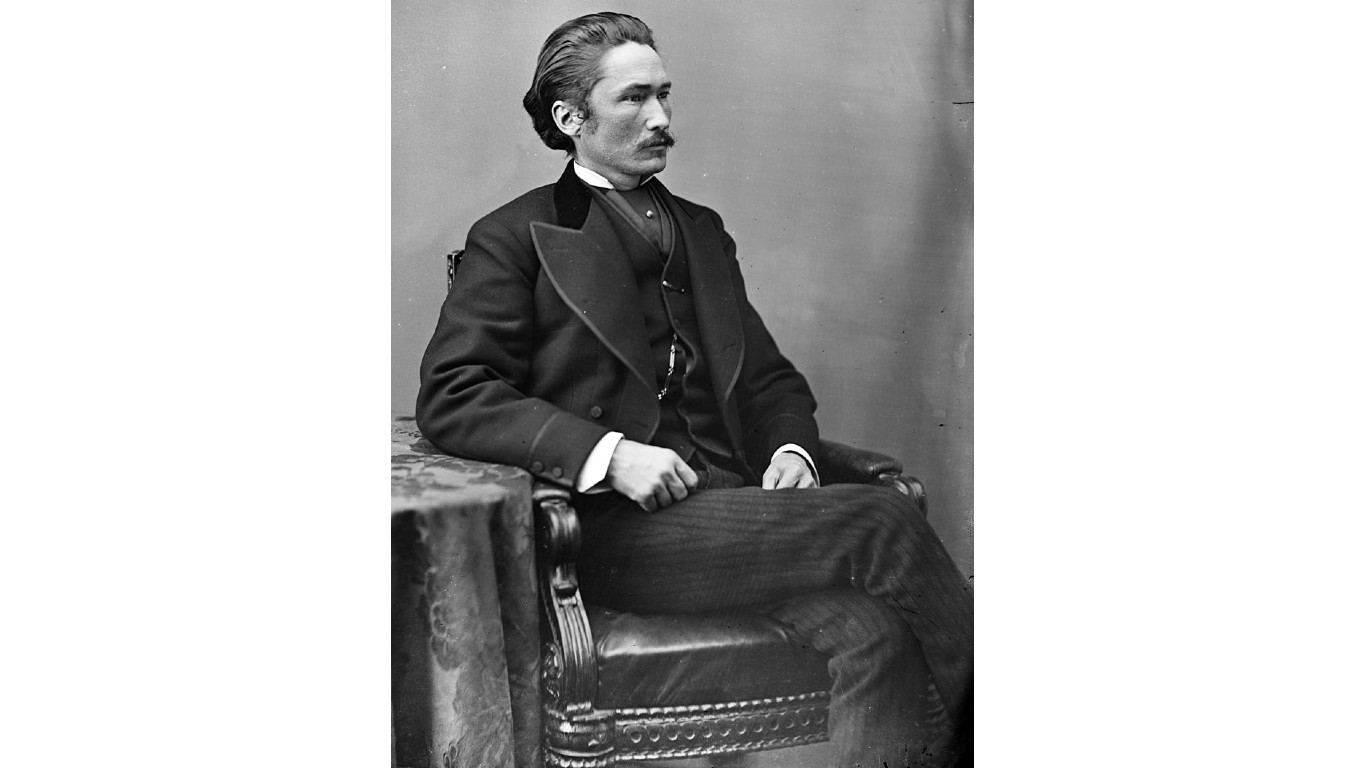
21. Alexander Boarman
> Time served in office: 90 days (tied)
> Dates of service: Dec. 3, 1872 – Mar. 3, 1873
> Legislative body: House
> Political party: Liberal Republican
> State: Louisiana
Alexander Boarman served in the Confederate Army and spent a year as mayor of Shreveport, Louisiana. In 1872, he was elected to the U.S. House of Representatives to fill the vacancy caused by the death of U.S. Rep.-elect James McCleery. He lost his reelection and left office 90 days later.
[in-text-ad-2]
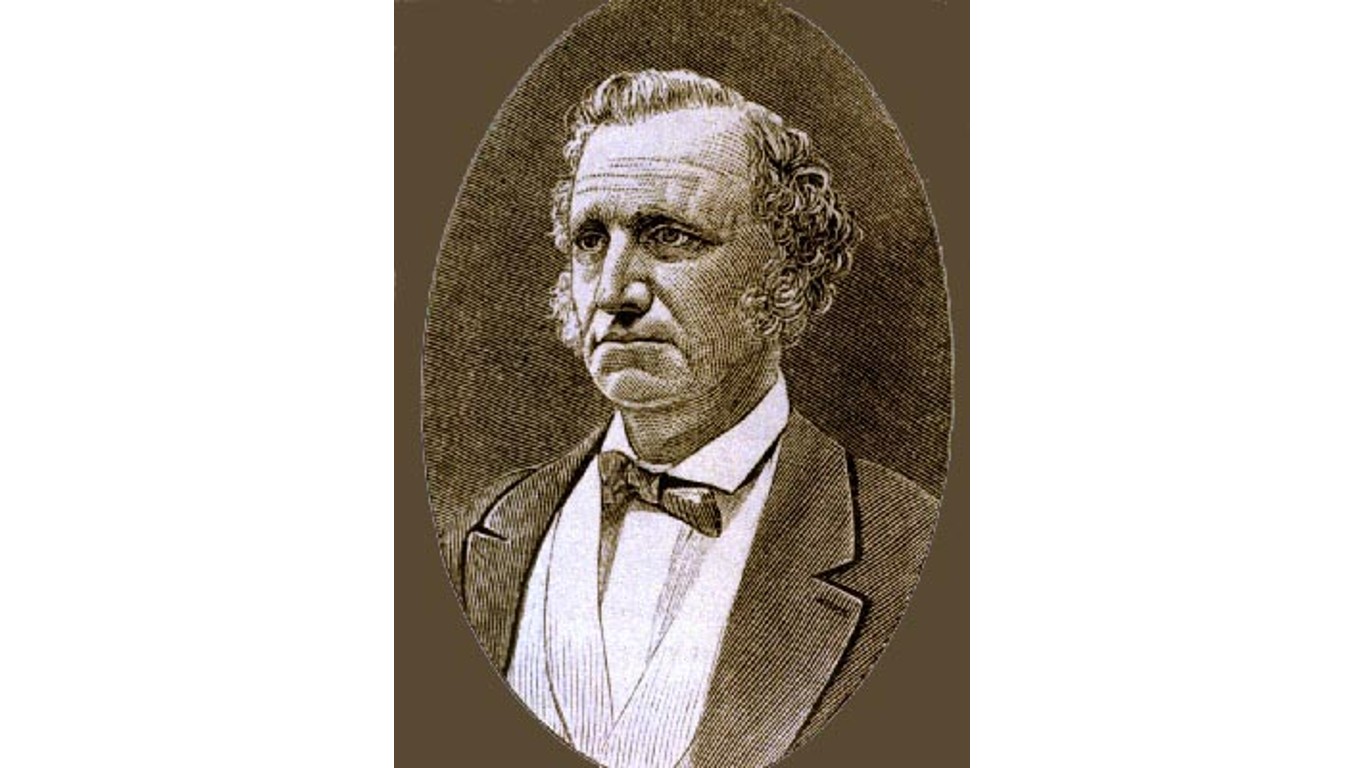
20. Benjamin Flanders
> Time served in office: 90 days (tied)
> Dates of service: Dec. 3, 1862 – Mar. 3, 1863
> Legislative body: House
> Political party: Unionist
> State: Louisiana
A New Orleans teacher, planter, and politician, Benjamin Flanders was elected to the House, representing Louisiana’s 1st District, in an 1862 special election to assume a vacant seat. He chose not to seek reelection but went on to serve as governor of Louisiana and mayor of New Orleans, the last Republican mayor of the city.
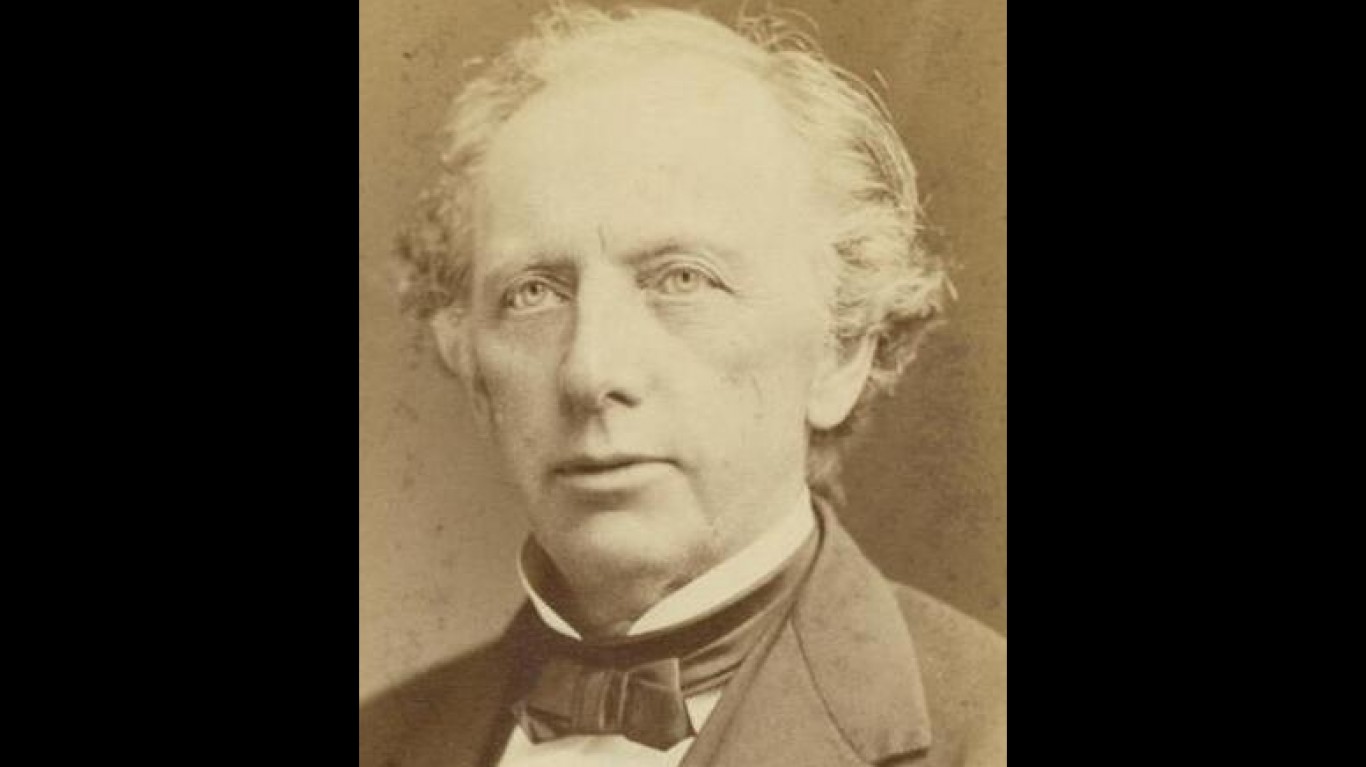
19. John W. Hunter
> Time served in office: 89 days
> Dates of service: Dec. 4, 1866 – Mar. 3, 1867
> Legislative body: House
> Political party: Democratic
> State: New York
A Democrat from Brooklyn, John Hunter was elected as a U.S. representative from the state of New York to fill the vacancy caused by the death of James Humphrey. He was censured while in office for insulting another member during a debate and didn’t seek reelection.
[in-text-ad]

18. Nathaniel D. Wallace
> Time served in office: 84 days
> Dates of service: Dec. 9, 1886 – Mar. 3, 1887
> Legislative body: House
> Political party: Democratic
> State: Louisiana
Nathaniel D. Wallace was elected to the U.S. House as a Democrat to fill the vacancy caused by the death of Michael Hahn in 1886. He didn’t seek reelection.

17. George Jones
> Time served in office: 73 days
> Dates of service: Aug. 27, 1807 – Nov. 7, 1807
> Legislative body: Senate
> Political party: Democratic-Republican
> State: Georgia
George Jones had an illustrious career as Georgia representative and senator, mayor of Savannah, and a judge before being appointed to the U.S. Senate to fill a vacancy caused by the death of Abraham Baldwin. He served for 73 days, until a successor was sworn in.
16. Dean Barkley
> Time served in office: 59 days (tied)
> Dates of service: Nov. 4, 2002 – Jan. 3, 2003
> Legislative body: Senate
> Political party: Independence Party of Minnesota
> State: Minnesota
Attorney Dean Barkley chaired Jesse Ventura’s successful bid for governor of Minnesota in 1998, and Ventura returned the favor by appointing him to fill the Senate seat occupied by Paul Wellstone, who died in a plane crash just weeks before the 2002 election. He only served until Norm Coleman was elected and sworn in to fill the seat.
[in-text-ad-2]
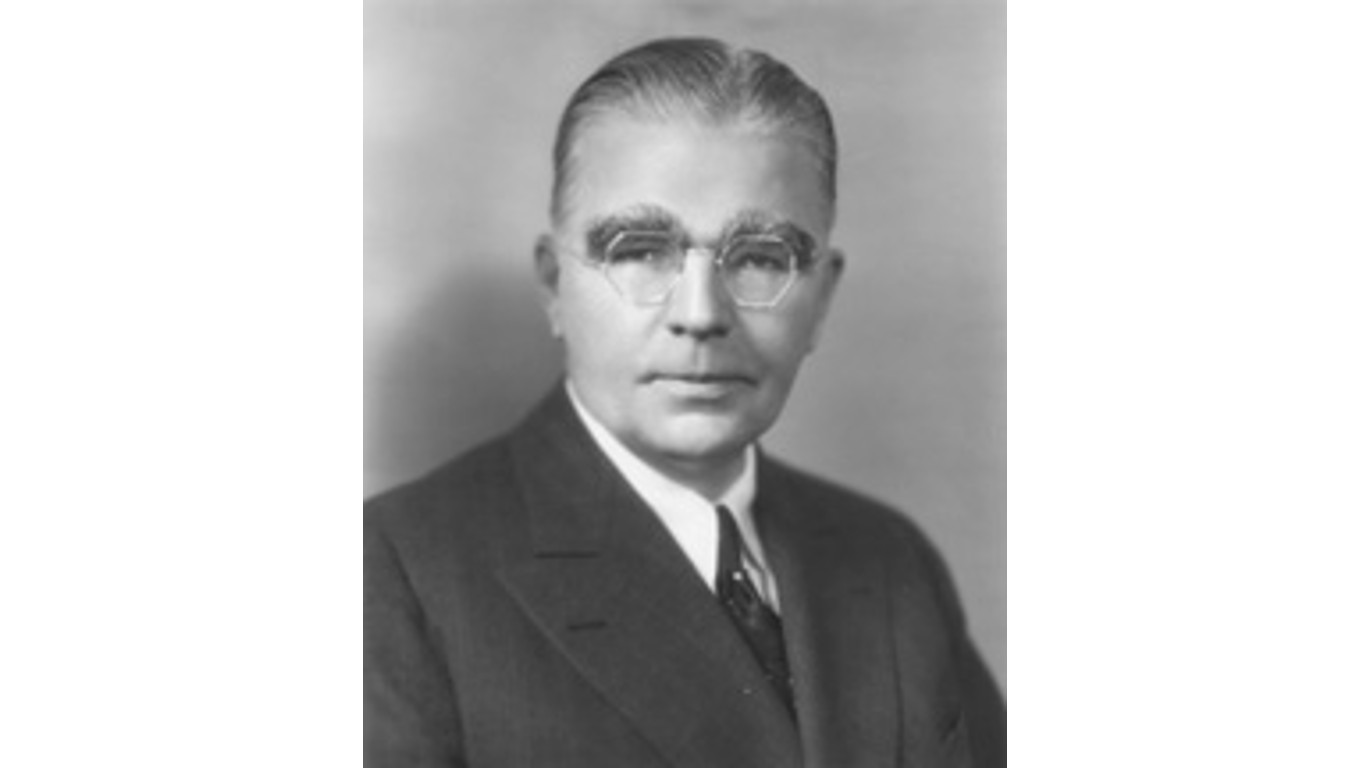
15. John Moses
> Time served in office: 59 days (tied)
> Dates of service: Jan. 3, 1945 – Mar. 3, 1945
> Legislative body: Senate
> Political party: Democratic
> State: North Dakota
John Moses served as governor of North Dakota from 1939 to 1945 and was elected into the U.S. Senate that year. He passed away after serving only 59 days in office. Aside from those assigned to fill vacancies and those not seated until after their official terms had started, he is the shortest-serving U.S. senator ever.
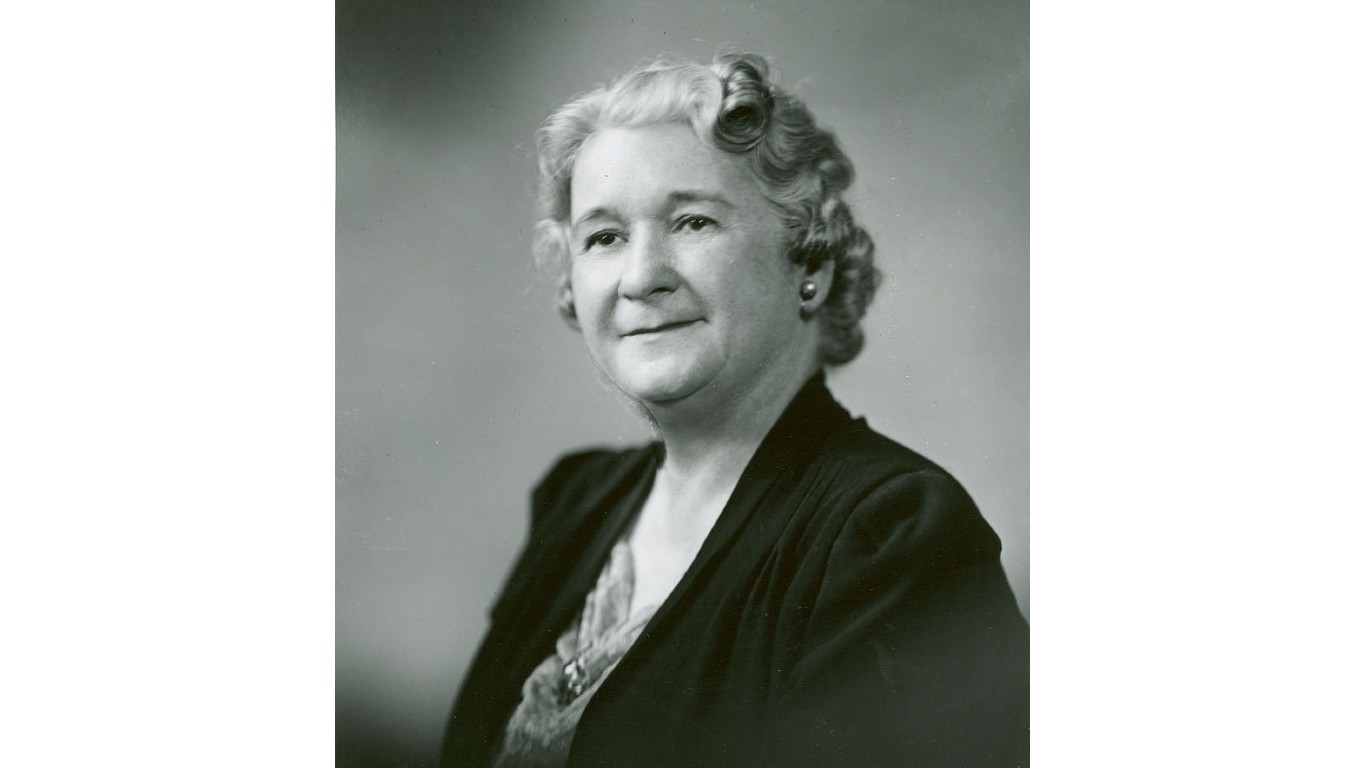
14. Willa L. Fulmer
> Time served in office: 58 days
> Dates of service: Nov. 7, 1944, to Jan. 3, 1945
> Legislative body: House
> Political party: Democratic
> State: South Carolina
Hampton P. Fulmer, was a U.S. representative from South Carolina from 1923 to 1944, when he died in office. His wife, Willa Fulmer, was elected to fill the vacancy caused by his death later that year, and she didn’t seek reelection.
[in-text-ad]
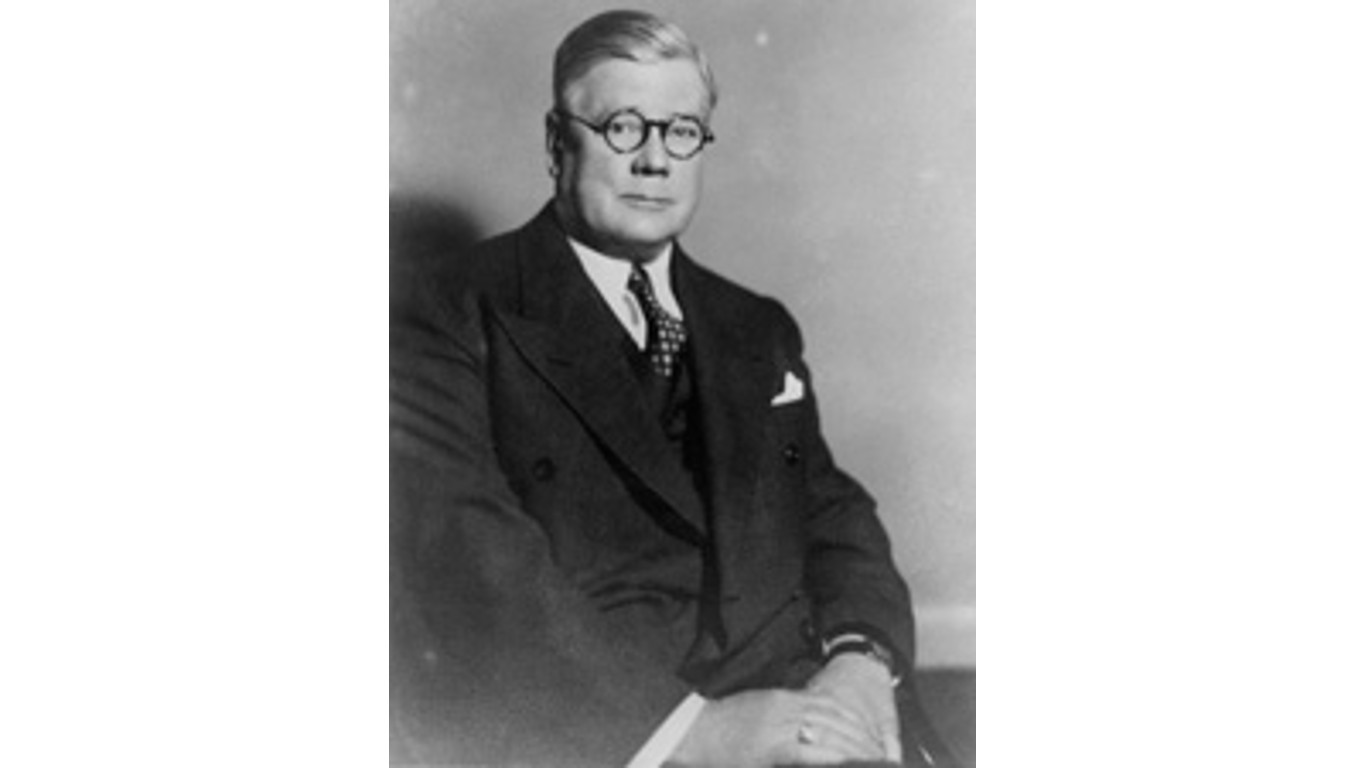
13. Thomas M. Storke
> Time served in office: 55 days
> Dates of service: Nov. 9, 1938 – Jan. 3, 1939
> Legislative body: Senate
> Political party: Democratic
> State: California
Thomas M. Storke was best known as a successful newspaper owner in Santa Barbara, California, when he was appointed to serve as an interim U.S. senator between the resignation of William Gibbs McAdoo in November 1938 and the swearing-in of his elected successor Sheridan Downey in January 1939.
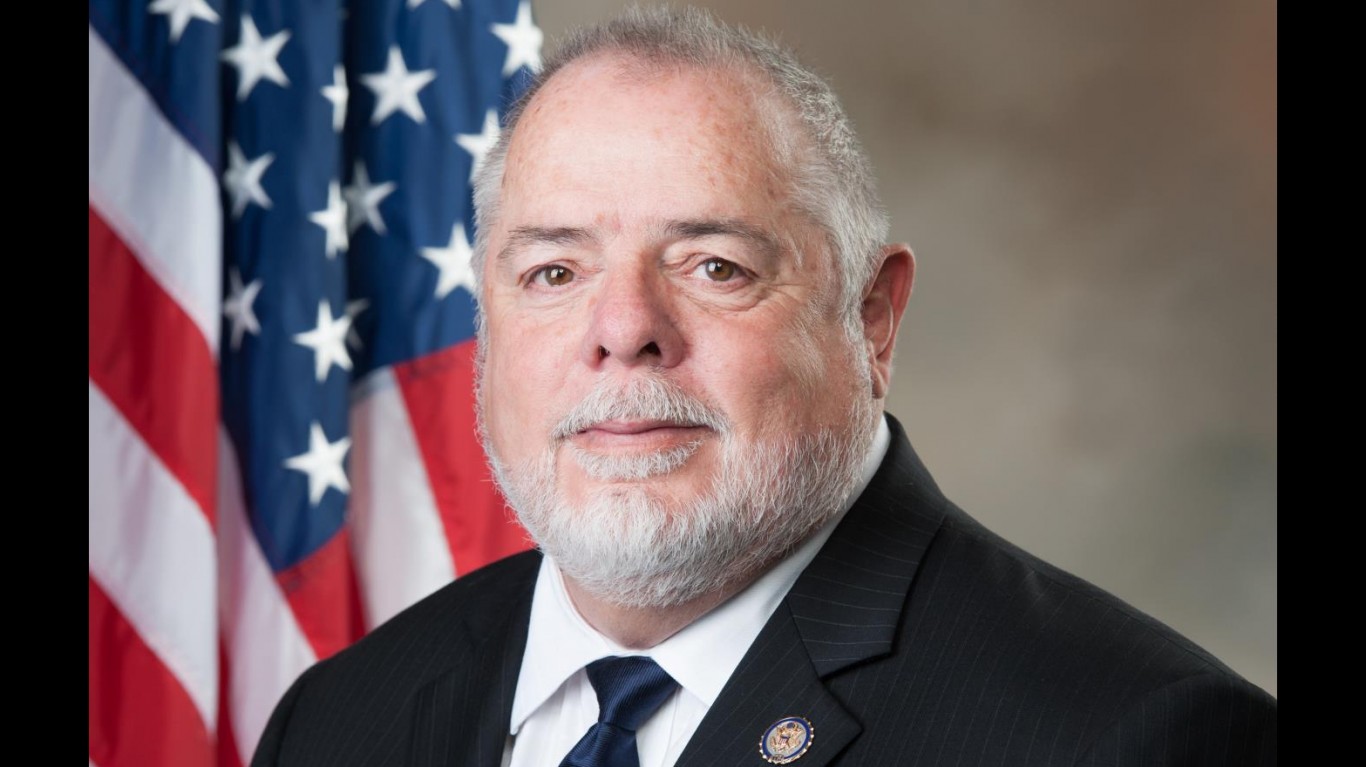
12. David Curson
> Time served in office: 51 days (tied)
> Dates of service: Nov. 13, 2012 – Jan. 3, 2013
> Legislative body: House
> Political party: Democratic
> State: Michigan
Democrat David Curson won a special election to replace Michigan Rep. Thaddeus McCotter, who resigned in the summer of 2012. He intended to return to private life immediately after his six-week term ended, and that’s precisely what he did.

11. Shelley Sekula-Gibbs
> Time served in office: 51 days (tied)
> Dates of service: Nov. 13, 2006 – Jan. 3, 2007
> Legislative body: House
> Political party: Republican
> State: Texas
Shelley Sekula-Gibbs won a special election to finish the term of House Majority Leader Tom DeLay, who decided to retire rather than face a tough reelection campaign. Sekula-Gibbs’s term only lasted 51 days, until Nick Lampson was sworn in to represent the Texas district.
[in-text-ad-2]
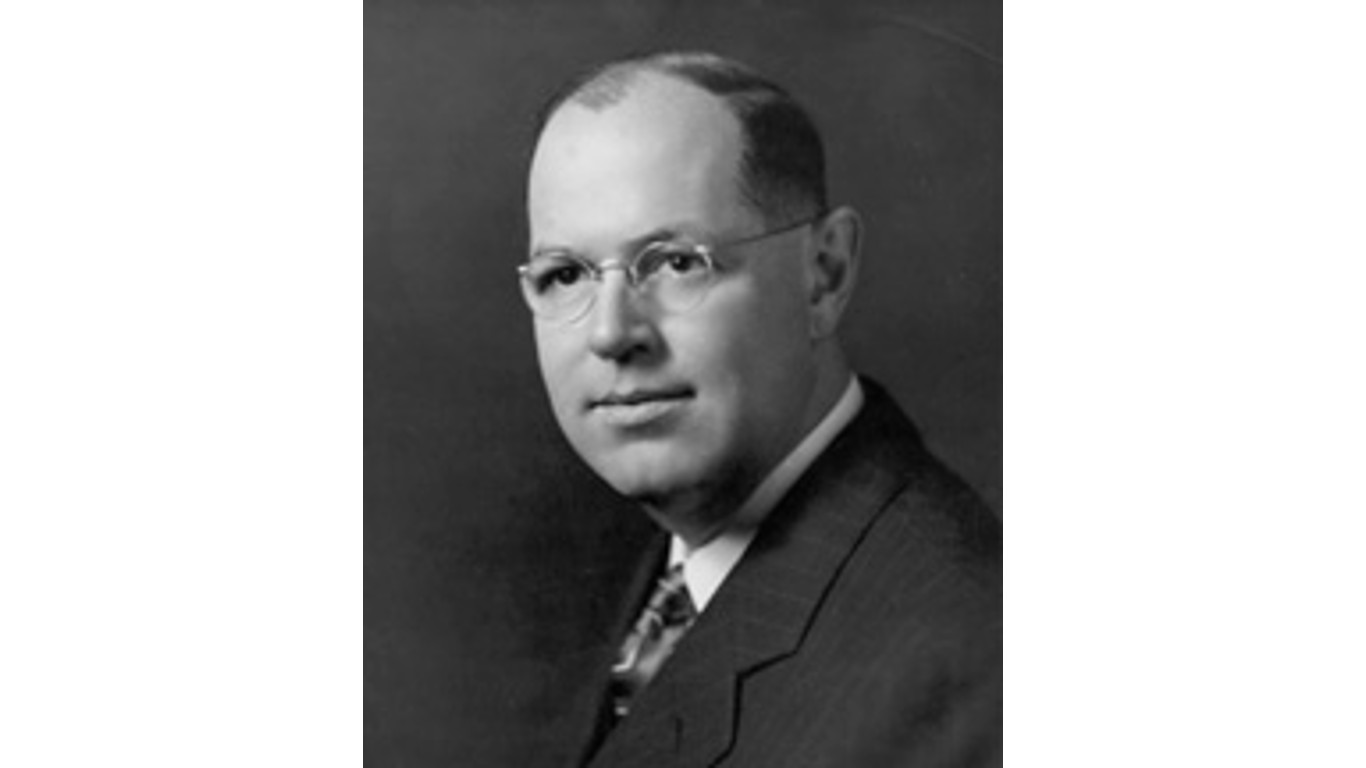
10. Wilton E. Hall
> Time served in office: 44 days
> Dates of service: Nov. 20, 1944 – Jan. 3, 1945
> Legislative body: Senate
> Political party: Democratic
> State: South Carolina
Chairman of the South Carolina Planning Board, Wilton E. Hall was appointed as a Democrat to the U.S. Senate to fill the vacancy caused by the death of Ellison D. Smith. He served for just 44 days, and wasn’t a candidate for reelection.
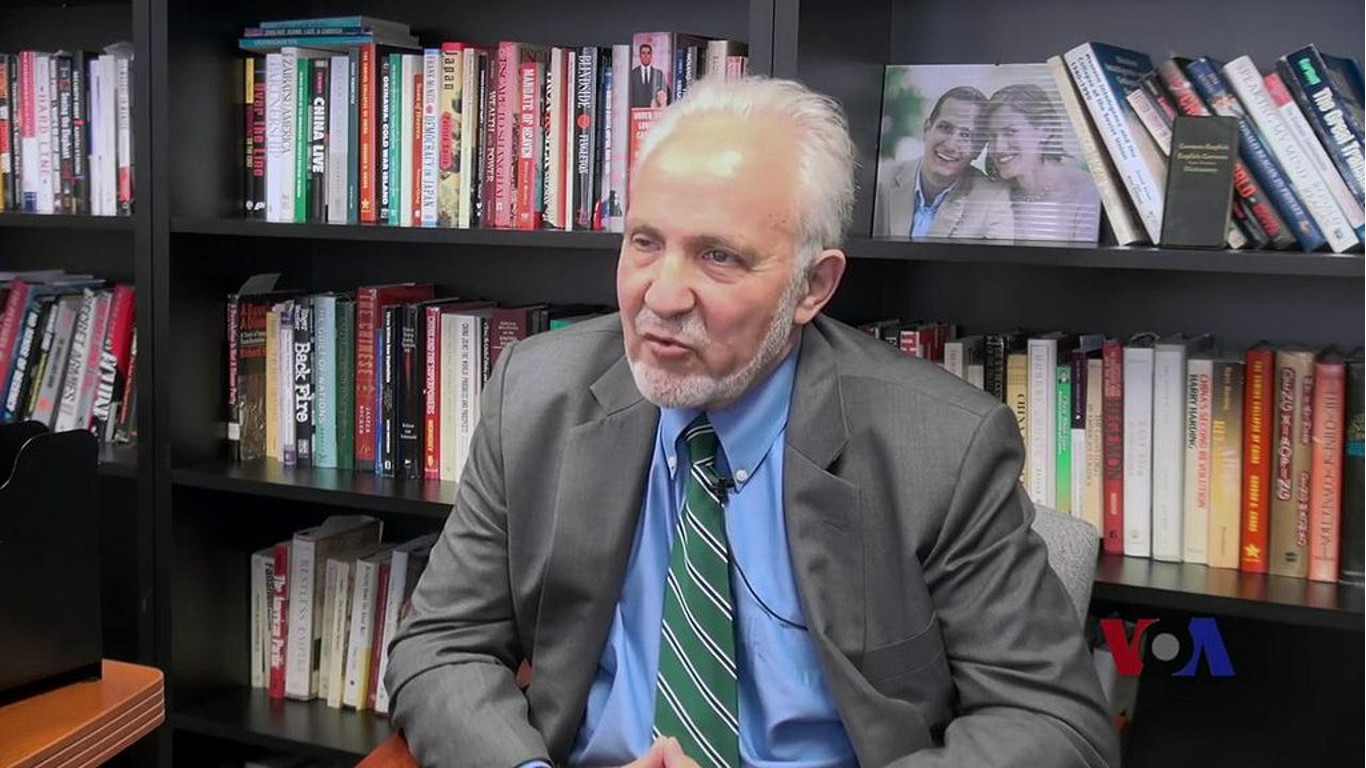
9. James Mann
> Time served in office: 39 days
> Dates of service: Jul. 18, 1868 – Aug. 26, 1868
> Legislative body: House
> Political party: Democratic
> State: Louisiana
James Mann was a Maine state senator who stayed in Louisiana after the Civil War, and there he was elected as a Democrat to the House of Representatives from that state in 1868. He died after only 39 days in office. A special election to succeed him was won by John Willis Menard, the first African American ever elected to Congress, but the House of Representatives refused to seat him.
[in-text-ad]

8. Brenda Jones
> Time served in office: 35 days
> Dates of service: Nov. 29, 2018 – Jan. 3, 2019
> Legislative body: House
> Political party: Democratic
> State: Michigan
Brenda Jones was a member of the Detroit City Council who won a special election to replace long-serving Rep. John Conyers, who resigned in 2017 due to sexual harassment allegations. After serving for just 35 days, Jones was defeated in the Democratic primary for the general election by Rashida Tlaib.

7. Kwanza Hall
> Time served in office: 31 days
> Dates of service: Dec. 3, 2020 – Jan. 3, 2021
> Legislative body: House
> Political party: Democratic
> State: Georgia
A member of the Atlanta City Council, Kwanza Hall won the special election to replace rep Lewis after his 2020 passing. He wasn’t selected to be a candidate in the general election, so Hall only served 31 days in office.
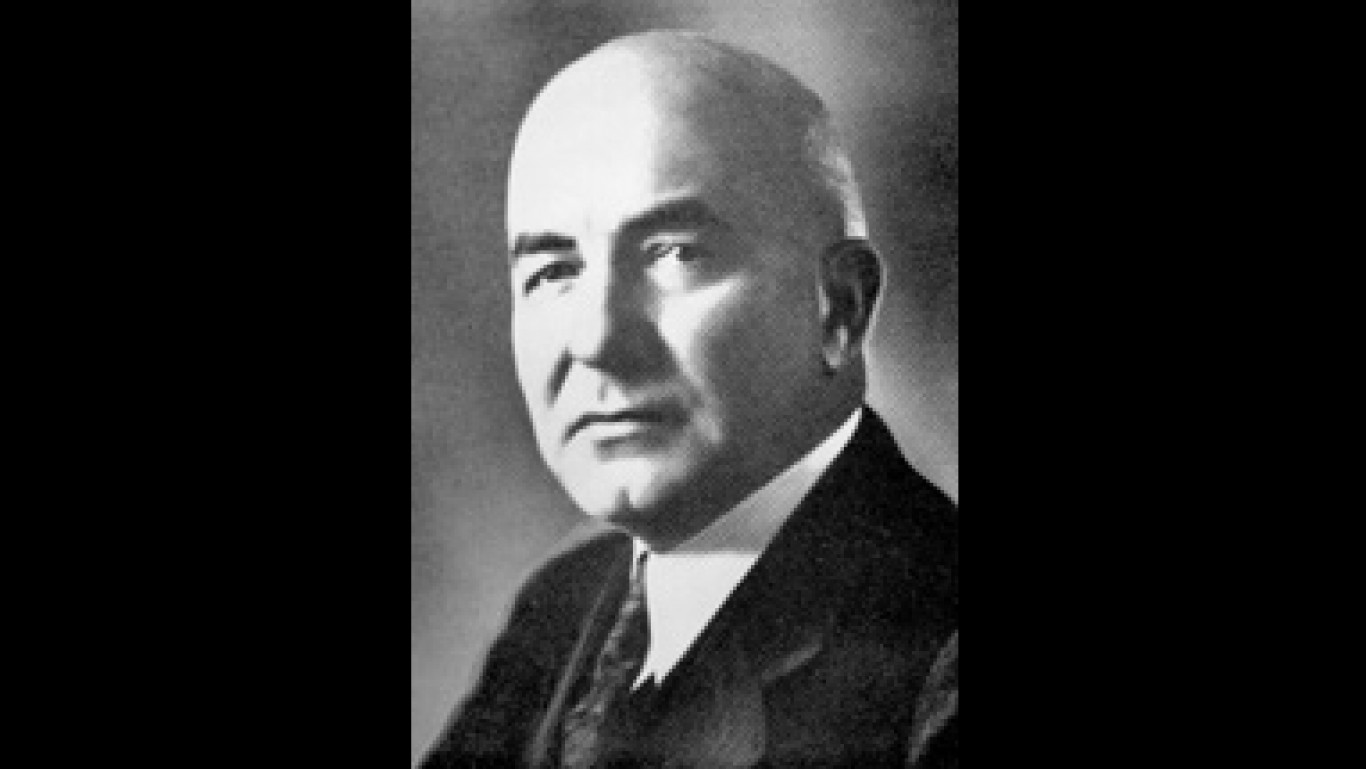
6. Alva M. Lumpkin
> Time served in office: 10 days
> Dates of service: Jul. 22, 1941 – Aug. 1, 1941
> Legislative body: Senate
> Political party: Democratic
> State: South Carolina
A U.S. district judge, Alva Lumpkin was appointed to the Senate to fill a vacancy caused by the resignation of Sen. James F. Byrnes in 1941. He served for just 10 days before dying of a gastric hemorrhage.
[in-text-ad-2]
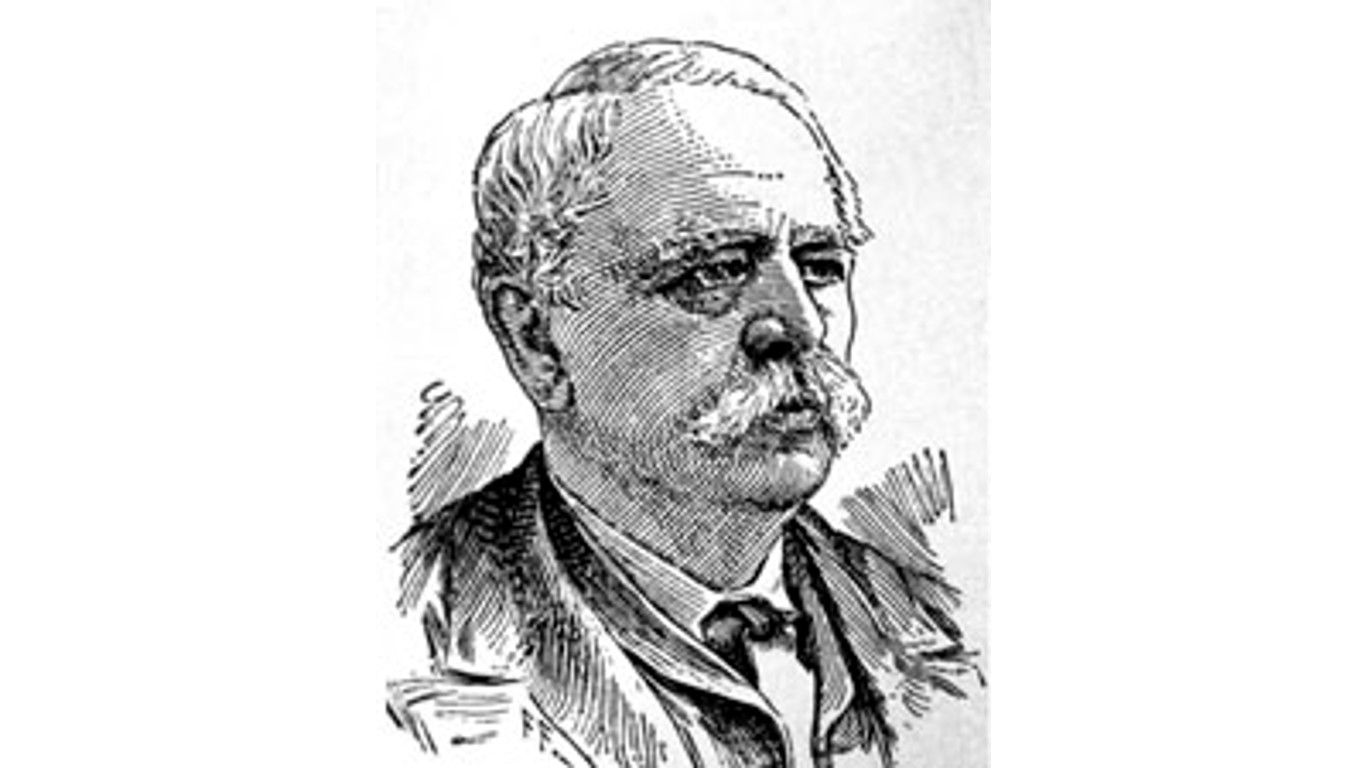
5. Homer V. M. Miller
> Time served in office: 8 days
> Dates of service: Feb. 24, 1871 – Mar. 3, 1871
> Legislative body: Senate
> Political party: Democratic
> State: Georgia
A Georgia Democrat and former Confederate doctor, Homer V.M. Miller was elected to the Senate in 1868, when the state’s congressional representation was restored postwar. He was seated on Feb. 24, 1871, and his term ended just a week later.
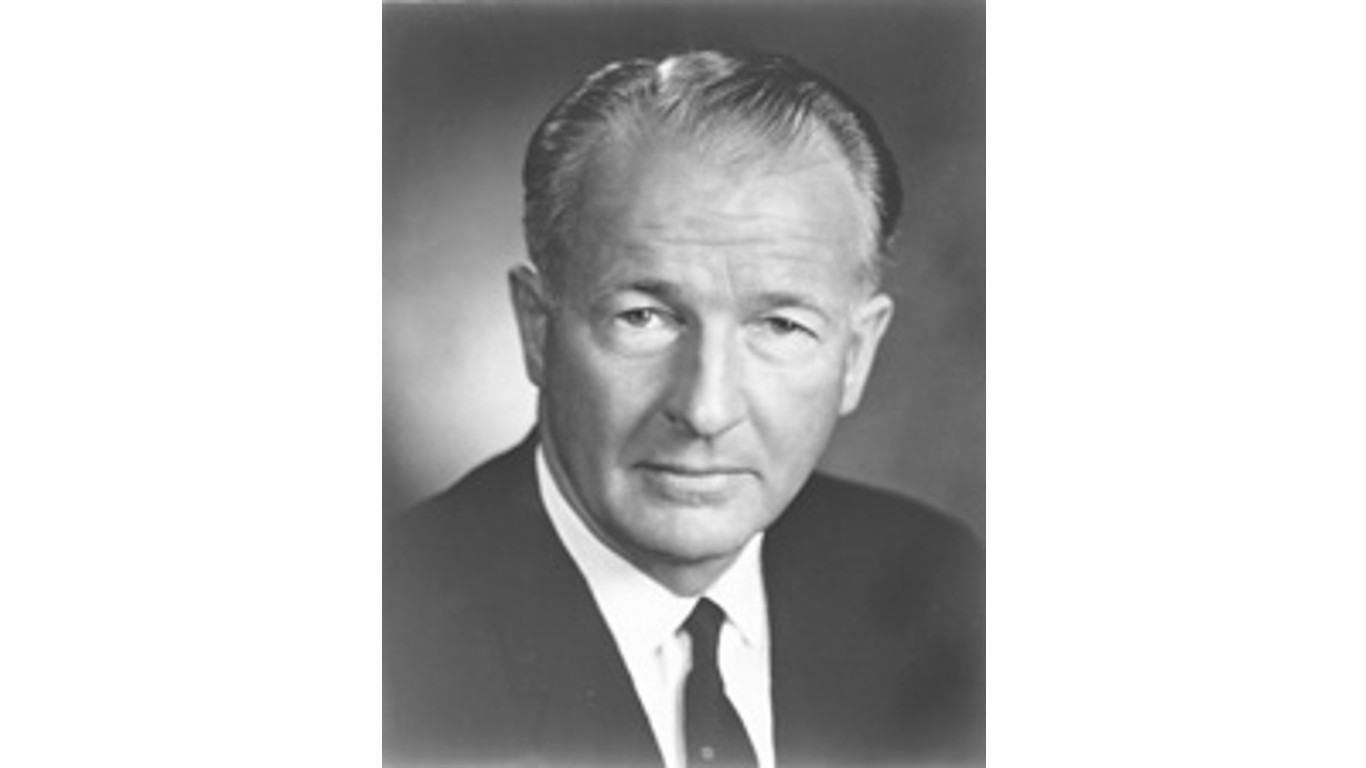
4. Louis C. Wyman
> Time served in office: 3 days
> Dates of service: Dec. 31, 1974 – Jan. 3, 1975
> Legislative body: Senate
> Political party: Republican
> State: New Hampshire
A New Hampshire Republican representative, Louis C. Wyman ran for the 1974 Senate seat that was opened up when Norris Cotton retired. After the election, his opponent, Democrat John A. Durkin, demanded a recount, and the resulting back-and-forth lasted more than seven months. During this time, the governor appointed Wyman to the seat for the balance of the term – a whopping three days – to give him a leg up in seniority. It was later decided to just hold another election, which Durkin won.
[in-text-ad]

3. Rebecca Latimer Felton
> Time served in office: 1 day (tied)
> Dates of service: Nov. 21, 1922 – Nov. 22, 1922
> Legislative body: Senate
> Political party: Democratic
> State: Georgia
A feminist and a suffragist in Georgia during the Progressive era, 87-year-old Rebecca Latimer Felton was appointed senator as a largely symbolic gesture to complete the remaining one-day of a term in November 1922. This made her the first woman to serve in the Senate as well as, then, the oldest freshman senator.
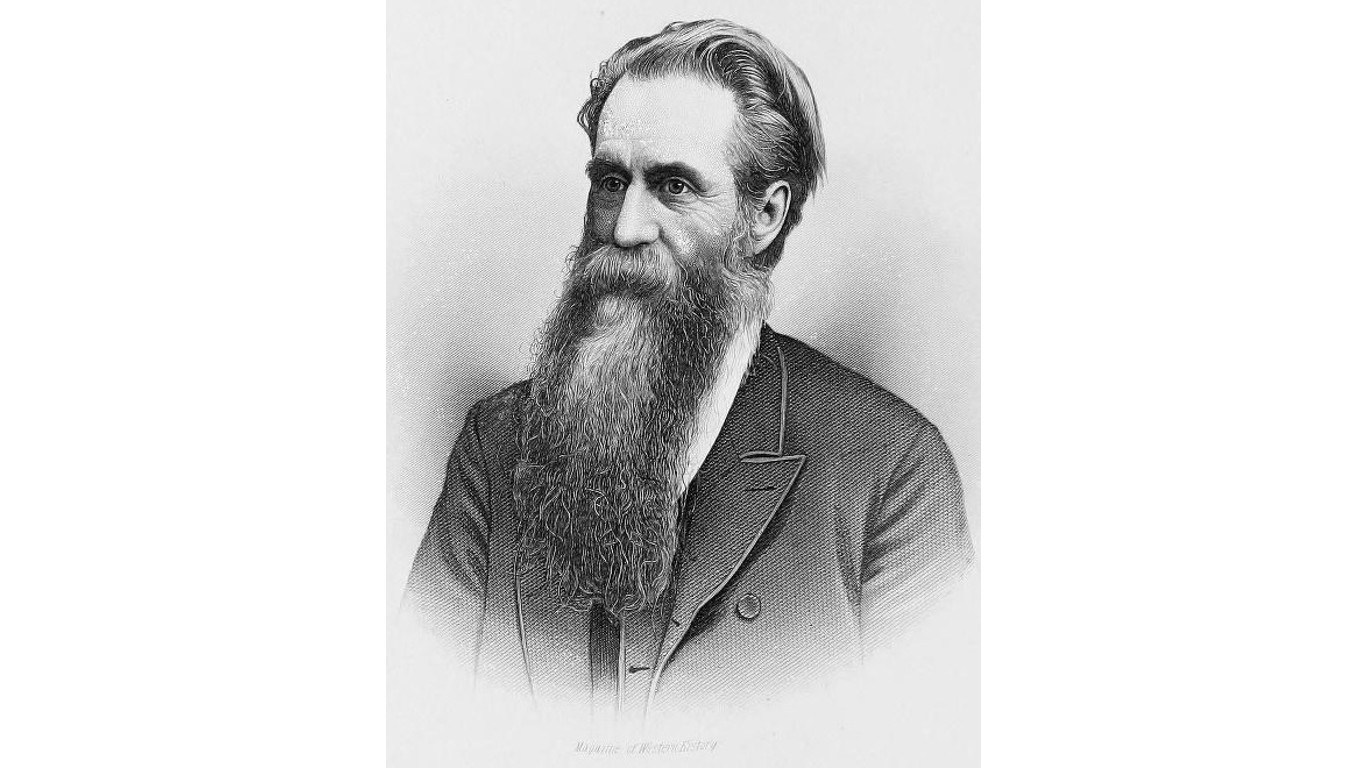
2. Turner M. Marquette
> Time served in office: 1 day (tied)
> Dates of service: Mar. 2, 1867 – Mar. 3, 1867
> Legislative body: House
> Political party: Republican
> State: Nebraska
Turner M. Marquette was a Nebraska Republican who won a seat in the House of Representatives for the Territory of Nebraska. However, Nebraska was admitted as a state only one day after his swearing-in, so his election was voided and he was only able to serve for less than two full days.

1. Effingham Lawrence
> Time served in office: <1 day
> Dates of service: Mar. 3, 1875
> Legislative body: House
> Political party: Democratic
> State: Louisiana
Effingham Lawrence is best-known for serving the shortest term in congressional history: just one day. His opponent in the 1872 election, Jacob Hale Sypher, was initially declared the winner, but Lawrence appealed the results and eventually won. By a quirk of the congressional calendar, Lawrence was only able to serve for one day before his term ended.
The Average American Is Losing Momentum On Their Savings Every Day (Sponsor)
If you’re like many Americans and keep your money ‘safe’ in a checking or savings account, think again. The average yield on a savings account is a paltry .4%1 today. Checking accounts are even worse.
But there is good news. To win qualified customers, some accounts are paying more than 7x the national average. That’s an incredible way to keep your money safe and earn more at the same time. Our top pick for high yield savings accounts includes other benefits as well. You can earn a $200 bonus and up to 7X the national average with qualifying deposits. Terms apply. Member, FDIC.
Click here to see how much more you could be earning on your savings today. It takes just a few minutes to open an account to make your money work for you.
Thank you for reading! Have some feedback for us?
Contact the 24/7 Wall St. editorial team.